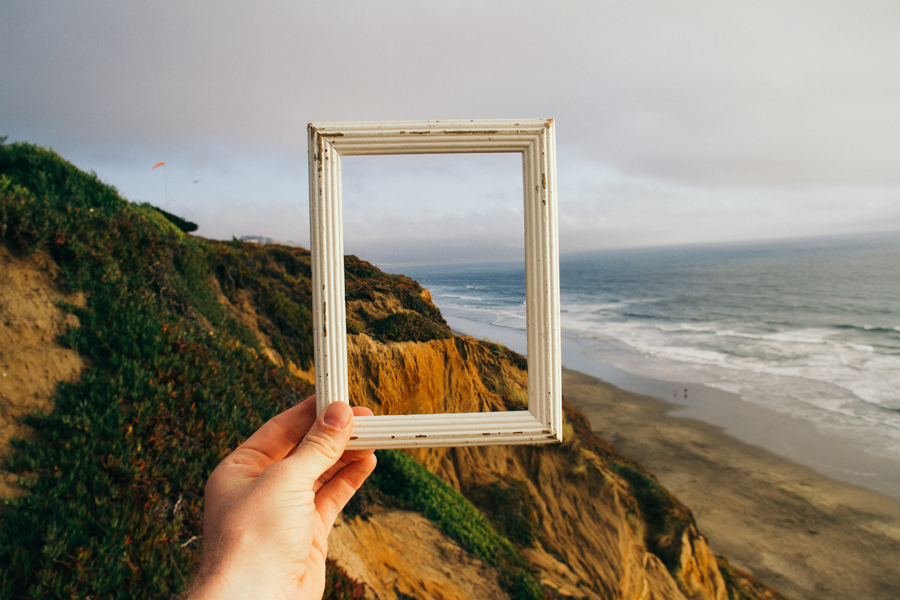
Imagine you’re at a beach on a beautiful summer’s day, and you become aware of a child moping and whining, complete with the familiar ear-piercing tones. It’s easy to question the parenting present (or not present), yell at the kid in your own head, and get upset that he is ruining your day.
Or, you can choose to see that child’s issues and expressions in context of the entire scene. From the perspective of the entire scene, his issues are at a relatively minor volume compared to the warmth of the sun, the gentle lapping of the waves, and the smooth sand between your feet.
This shift in perspective does not stop the kid from whining, but instead, it puts him in context. Doing so will quite naturally make his tones less abrasive. As far as you’re concerned, the pleasant sensations of the day override the abrasiveness of his issues.
Context in Meditation
This is something we practice and reinforce in meditation. We train ourselves to sit with the moment exactly how it is, with all the sensations we are aware of.
The tendency is for our minds to glom on to one particular sensation or thought, whether to judge it or analyze it, to question why it’s there or wish it away. Meditation is a practice of noticing that we are down the rabbit hole of thought, and then letting go of that attachment and bringing our awareness back to the greater context of all sensations present.
Context Breeds Compassion
A few years back I was driving in the pre-dawn hours to work and I pulled into an empty parking lot to get a bagel and a cup of coffee. As I pulled in, I noticed there was another car coming at a right angle towards me, and we were headed to a collision. We both stopped short and in the subsequent pause I sped away into a parking spot. My intent was to get out of the way of the other driver as quickly as possible so we could both get where we wanted to go.
As it turned out, we were both headed to the same bagel shop. This older woman came in behind me and was indignant, fuming about how I had driven, exclaiming that I was a dangerous driver and almost caused an accident.
When I apologized and gently explained my reasoning, that I was trying to get out of her way, she immediately softened. As she understood the greater context for my actions, her rage almost instantly turned to compassionate understanding, and no longer took offense.
Looking For Context
When we can provide context to a personal problem we’re facing, or a potentially anger-inducing quote, or an eye-catching headline, we free ourselves to likewise find compassionate understanding.
The way information is peddled to us is often in quick sound-bite format, devoid of depth and context. A movie may be advertised as “Critics are saying… ‘amazing’” but perhaps what the critic actually said was, “This movie is an amazing waste of time and money.”
Likewise, it is common for us to complain that “Life isn’t fair.” However, consider what were some of the worst moments of your life when they happened. Perhaps after time has gone by, and you can see them in the greater context of who you are and how you have grown, these events were actually forces of good, and helped you evolve and move your life in a direction that has been undoubtedly beneficial.
Context provides us freedom.
A Challenge
I will challenge you, as I challenge myself, to strive to find the greater context of challenges that you face. Notice the knee-jerk reactions you have to things, and strive to find the deeper meaning. I invite you to look for the 90% of the proverbial iceberg that is submerged and not consider that 10% tip to be its entirety.
